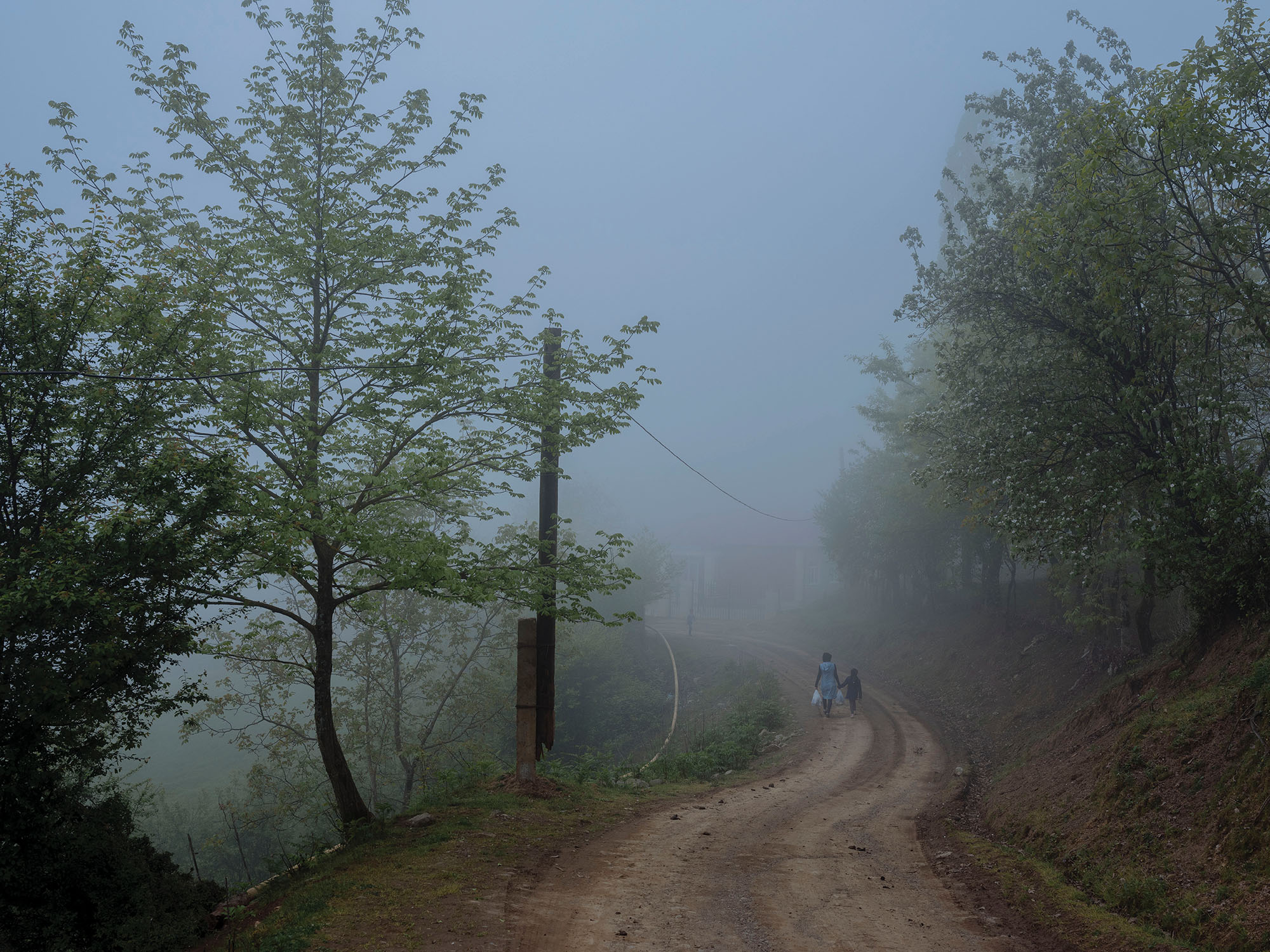A weekly newsletter for Pacific Standard Premium members.

Your Five Essential Reads
A rundown of five of our most important and timely stories from the past week.
- For our special photo issue about indigenous land rights, six Magnum photographers went into remote regions around the world to document the unseen battles being waged by native peoples against government and commercial interests to remain on their ancestral lands. In this issue we have stories from Azerbaijan, Greenland, Honduras, Malaysia, Tanzania, and the Philippines all housed together on a sleek, custom-designed microsite that was built in partnership with the Pulitzer Center for Investigative Reporting. Experience all of the photo essays here.
- Conspiracy theorists are having a moment. Between QAnon showing up at a President Donald Trump rally and then being potentially debunked by BuzzFeed News and the decision by Facebook, Apple, and others to remove Infowars content from their platform, those who usually remain in the shadowy corners of the Internet have found themselves in the middle of the news cycle. But are we prepared for this reality? Contributing writer Jared Keller interviewed communications professor Whitney Phillips to discuss how poorly prepared the mainstream media is for taking on Internet trolls. On the other side, Nathan Collins spoke to a litany of experts about how we can fix this problem and become more able to cope with these deliberate attempts to disseminate fake information. Read Keller’s interview here and Collins’ story here.
- One of the most well-known ways that disinformation campaigns gain traction is via social media platforms. Most notably, in the wake of the 2016 elections, Facebook has dealt with numerous complaints over how the company dealt with fake news spread by Russian accounts looking to sow discord within the American electorate. In response, the company has installed a new verification policy requiring a person to provide identifying information—such as a Social Security number—in order to run a political ad on its platform. However, as contributing writer Massoud Hayoun reports, some critics are warning that this policy is chilling speech from immigration activists protesting the Trump administration policies—particularly those activists who are undocumented themselves. Read Hayoun’s story here.
- Wildfires continue to burn in California and elsewhere across the country. The president decided to weigh-in on the issue on Twitter, arguing that they were caused by what he deemed “bad environmental laws.” As it turns out, Trump’s prognosis is pretty much entirely wrong. Editorial fellow Emily Moon spoke with climatologists to fact check the president’s tweets. Read Moon’s story here.
- Vista High School in San Diego had spent years dealing with bad attendance, poor class participation, and low graduation rates. In order to address these issues, the school took a dramatic step by putting in place a new curriculum based on a personalized-learning approach that uses smaller classes and closer teacher-student relationships—among other things—to raise academic performance. Michael Elsen-Rooney visited the school to report on the programs successes, failures, and everything in-between. Read Elsen-Rooney’s piece here.

Since We Last Spoke: The Stubborn Gender Gap
Updates to stories from the Pacific Standard archive.
In March, Maya Dusenbery published her book Doing Harm: The Truth About How Bad Medicine and Lazy Science Leave Women Dismissed, Misdiagnosed, and Sick, confronting the sexism woven into medicine and research on women’s illnesses. Dusenbery has long been a major voice in Pacific Standard‘s coverage of persisting gender inequality. Earlier this year, she wrote about a Grey’s Anatomy episode she had been expecting “for years: the one that tackles the insidious gender bias within the medical system.” The episode takes on disparities women face in receiving treatment for heart attacks, alongside the broader stigma against mental illness. Doing Harm expands on these inequities, finding that, while autoimmune diseases, chronic pain, and other debilitating illnesses disproportionately affect women, the medical field continues to silence those who speak of their symptoms.
Of her latest work, Dusenbery told Pacific Standard: “I hope that learning this history and seeing the research will make [women] less likely to accept medical dismissal. But it’s important to acknowledge that women shouldn’t have to bootstrap their way of this problem. It’s on the people within the research and medical communities to come up with solutions.”

(Photo: Significant Productions)
PS Picks
PS Picks is a selection of the best things that the magazine’s staff and contributors are reading, watching, or otherwise paying attention to in the worlds of art, politics, and culture.
From Album to Film With Sorry to Bother You: I’ll just come out and admit that I was still in high school when Sorry to Bother You came out—no, not the movie that came out this July (I trust you’ve either seen it, or at least seen the headlines), but the album that preceded the movie by six years. Back then, in 2012, Boots Riley—the eccentric communist director of the movie that stars Lakeith Stanfield and Tessa Thompson—was still best-known for his place at the head of The Coup, an Oakland-based hip-hop group recognizable by its funky instrumentals and radical lyrics. Apparently Riley, a film school grad, already had the screenplay written for Sorry to Bother You in 2012. The only thing he was missing was a large pot of money; so, the screenplay was re-purposed as The Coup’s sixth studio album.
As a high schooler in the Bay Area, I had found the The Coup’s music to exist somewhere in-between Talib Kweli-style conscious rap and the constellation of Bay Area hip-hop that revolved around the gravity of Mac Dre and E-40. I was a kid growing up in a good neighborhood on the San Francisco Peninsula. I wasn’t paying the closest attention to rap lyrics: I was young, and comfortable, and not angry yet. But when Sorry to Bother You came out, it was 2012: the recession was wearing off, and we were realizing that, in the Bay Area, the pain was not going to stop. Rent kept rising. In my high school, classmates and friends’ families moved further and further toward the cheaper land as they were priced out of their old neighborhoods. They’d jump from apartment to apartment, closer to the water, like they were being forced into the ocean. One week, the seat next to you in class would be empty: families gave up and moved inland, away from the tentacles of Silicon Valley and into the “other valley” in Central California.
I remember listening to Sorry to Bother You when it came out. It was, to put it simply, nuts. One song—”Your Parents’ Cocaine”)—featured background instrumentals that were almost certainly played on kazoos. A spoken word piece in “We’ve Got a Lot to Teach You, Cassius Green,” seemed to follow some bizarre story about actual monsters in a telemarketing office. But nestled in the ineffable plot of the album and its befuddling instrumentals were some lyrics I needed to hear: one line that stuck with me was about how paychecks couldn’t “stop the bleeding.”
I hadn’t thought of the album for a long time until I saw the movie last month. The fact that the plot of Sorry to Bother You the album is still relevant six years later is heavy. In 2012, we were losing; in 2018, we’ve lost. But the movie helped me get a bit closer to understanding how lyricists of The Coup manage to rap about rebellion over light-hearted party music. After they shut off the power to your building, you gotta find a way to keep the music going: even if it means picking up a damn kazoo.
—Jack Herrera, Editorial Fellow
PS in the News
A look at where our stories and staff surface in the national conversation.
- Canada’s National Observer and The New Republic cited editorial fellow Emily Moon’s piece about conservation regulations for California’s Sacramento-San Joaquin Delta in their story about President Donald Trump’s tweets about California’s wildfires.
- Staff writer Francie Diep’s look at how California’s fires are affecting cities’ air quality from dozens of miles away was included in CityLab Daily.
- David Leffler’s story about Trump’s immigration rhetoric and policy forcing migrants to take more hazardous routes into the United States was included in the Marshall Project‘s daily newsletter.
- Anne-Marie Slaughter, the chief executive officer of New America, shared Charlee Catherine Dyroff’s story about how hunters in Alaska provide traditional foods to local elders in order to provide them comfort.
The Conversation
A Journey Through Contested Lands (August 2018)
- There is a lot to dive into here. Looks great. Technical note: What did you use to assemble the final product? It was really intuitive and well put together. —SB Hopper
- Journalists chronicle battles over indigenous lands in six world regions. Beautiful collaboration between @MagnumPhotos and @PacificStand, funded by the @pulitzercenter. —Yulia Neyman Panfil
- Your eyeballs will thank you for looking at the new and extremely elegant photo issue of @PacificStand, with @pulitzercenter and @MagnumPhotos. —Daniel A.Gross
Following Trump’s Immigration Crackdown Migrants Are Taking More Dangerous Routes Into the U.S. (PSmag.com, July 31st)
- Thorough article by David Leffler in @PacificStand on migrant death crisis. I’m always happy when journos get the context right (aka “thematic framing”). —Brad Jones
How Middle Aged Women May Save Democracy (PSmag.com July 16th)
- Great, great interview with Theda Skocpol—read it, and you will feel inspired, and also realize that her assessment of our current situation is deeply incisive. —Rick Valelley
If you have any thoughts about this newsletter or our work—what you like/didn’t like/want to see more of—you can reach us at premium@psmag.com. If you’re not already, become a premium member by following the button below. As we continue to build out the benefits of a premium membership to Pacific Standard, we want to hear what would be most valuable to you.





